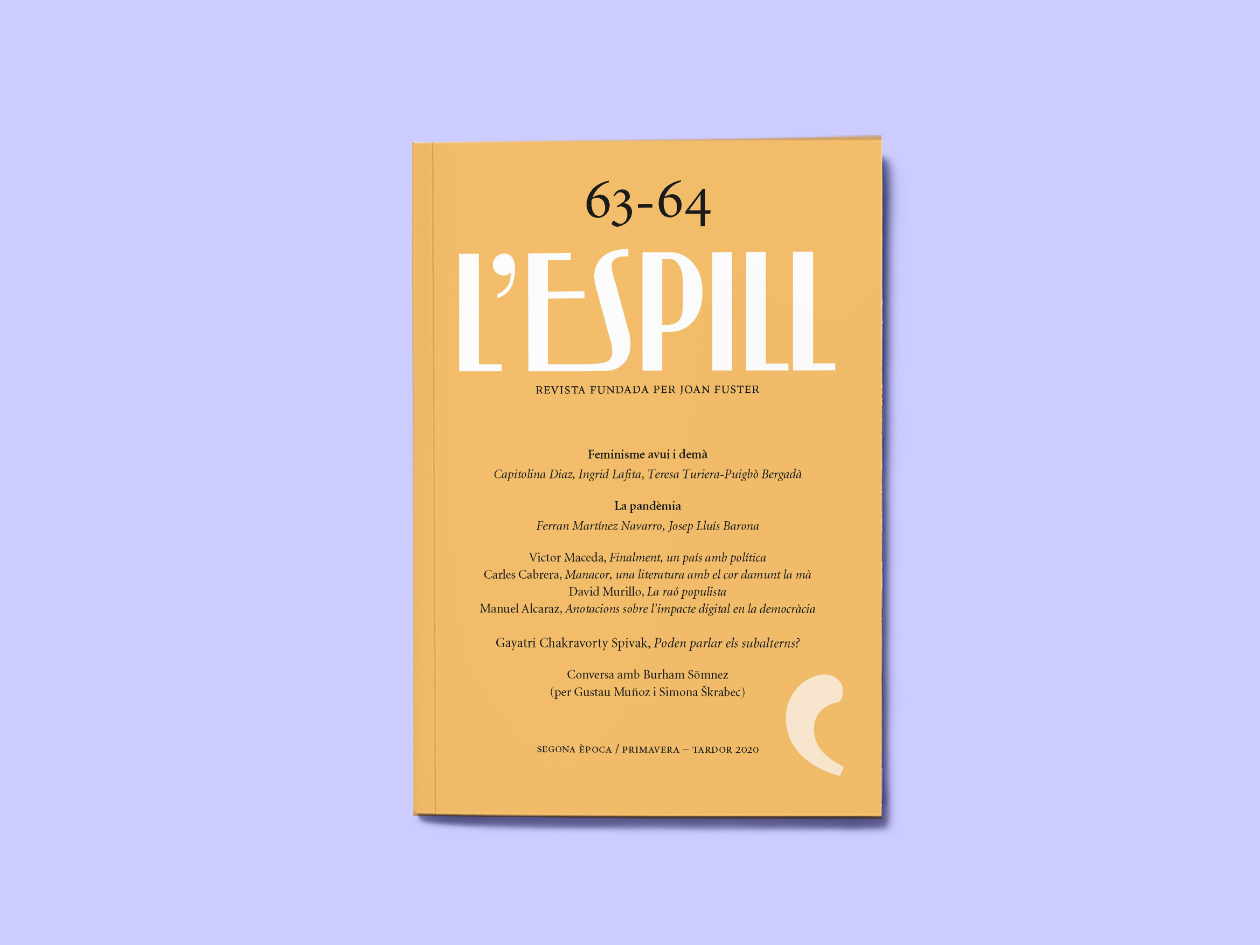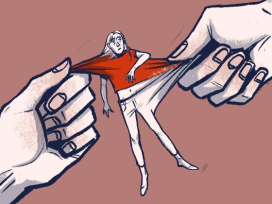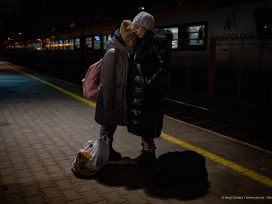Catalonian journal ‘L’Espill’ on feminism discusses: reducing the care deficit of men; women upholding health and environment; and recognition for war-time rape victims in peace times. Also: the dangers of flouting COVID-19 science.
In Díaz’s opinion, three gender gap issues – income, care work and access to free time – are closely inter-related. Even in countries such as Spain, where the salary gap has significantly reduced, women still spend more than twice as much time on domestic and caring tasks than men on average, with a consequent loss of free time to participate in other activities. ‘It is not enough,’ she writes, ‘to raise women’s salaries or fracture glass ceilings. We have to focus on root inequalities … the care gap, historically predating the wage gap, is … “the original gap”.’ Greater equality will only truly be achieved when men reduce their ‘care deficit’.

Sustaining women
Ingrid Lafita considers the same topic in the light of COVID-19. Lockdowns and the closure of schools, workplaces, day centres and other facilities ‘have made manifest a pre-existing care crisis,’ she writes. Women, whether family members or care workers, have been the major providers of support to rocketing demands. In Spain, 98% of 600,000 paid carers are women, a great many of which are recent migrants navigating a low-wage, underground economy.
Lafita compares the pandemic’s effects on women to those of the climate emergency: the responsibility for resolving daily needs such as sourcing water in drought-stricken countries falls disproportionately on women. This reliance on free or low-paid roles, she argues, helps sustain the status quo and evades real change. It is fundamental ‘to… incorporate women into decision-making in the management of natural resources.’
Victims of war and peace
As accompaniment to a documentary film, Teresa Turiera-Puigbò Bergadà presents interviews with women who were raped and children born of rape during the 1990s wars in Bosnia-Herzegovina. Violated women can be found ‘in every district, in every village’ but are recognized nowhere. Many feel a deep need to tell their stories and be acknowledged, but find their neighbours indifferent or antagonistic, only wanting to forget. Very few have received any psychological assistance. ‘The fact that a political consensus has still not been reached in Bosnia-Herzegovina on the numbers of victims on each side,’ writes the author, ‘and still less on those of rape, has imposed a second torture on women as “victims of peace”.’
Politics over science
Elsewhere in the magazine, Ferran Martínez Navarro, former director of Spain’s National Centre for Epidemiology, considers the Spanish profile of COVID-19 up to mid-2020. He identifies several areas that contributed to the gravity of the country’s health crisis: infection levels in geriatric care homes, inadequately regulated and often under-funded; the failure to protect health workers from infection, worsening the burden on health services; large numbers of seasonal agricultural workers living in poor conditions; and, in cities, overcrowding in low-income housing and a leisure industry insisting on bringing large groups of people together. And, at an official level, ‘a choice of strategies that has been based ever more on political criteria and not scientific evidence.’
This article is part of the 8/2021 Eurozine review. Click here to subscribe to our weekly newsletter to get updates on reviews and our latest publishing.
Published 5 May 2021
Original in English
First published by Eurozine
© Eurozine
PDF/PRINTPublished in
Newsletter
Subscribe to know what’s worth thinking about.
Related Articles

While opportunities to denigrate one’s own physical appearance abound from an early age, eating disorders remain surrounded by stigma and lack an adequate vocabulary. From high school to pandemic isolation, a Romanian woman recounts eight years of grappling with anorexia.

Italy’s she-cession
Il Mulino 4/2022
On the causes and remedies for the dramatic rise in inequality in post-pandemic Italy: including the gender pay gap, lack of pre-school provision in the South, and an education system that is failing the worse-off.







